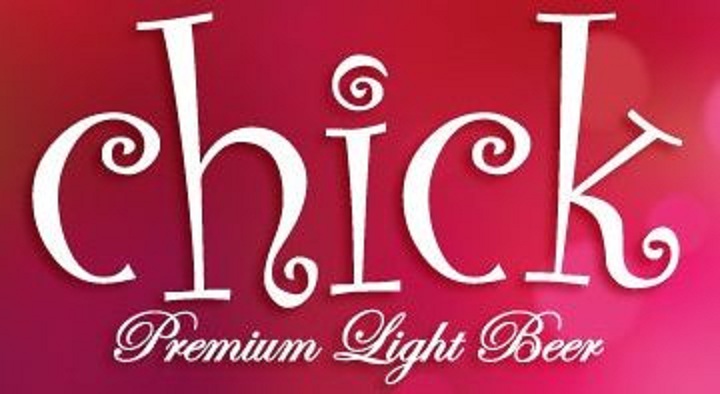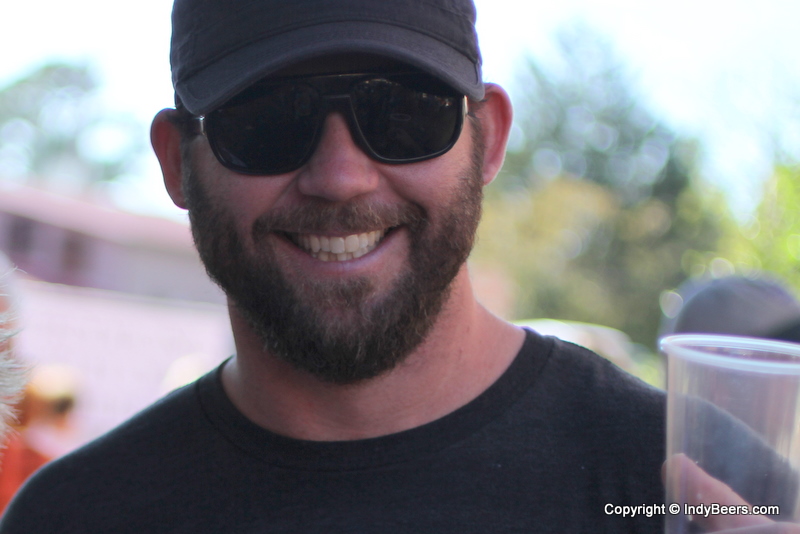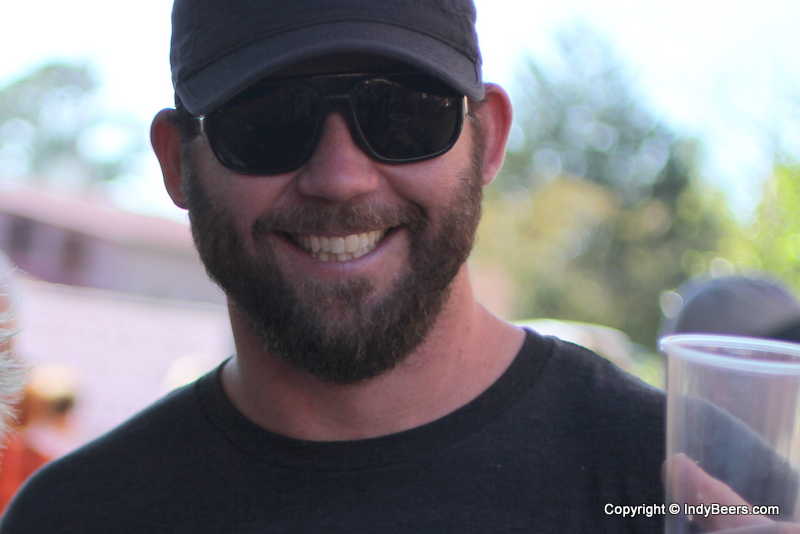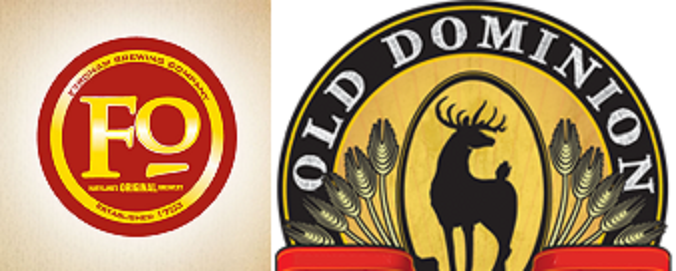
After we finished our review of Chick Beer I was able to catch up with the owners of Chick Beer and ask them a few questions as part of our ongoing interview series. I included some of the responses from the community in the series of questions. Thanks to all who posted their comments which helped contribute to this article.
On reddit.com “hopster” says, “This retarded gimmick is an insult to the millions of women who enjoy craft beer.” Has your product overly simplified and stereotyped women? Do you feel this negativity is based on the fact that the beer is marketed to women, or would response have been the same if you painted the male beer drinker with a similar broad brush stroke?
Wow, is someone really using the word “retarded” to tell us how insensitive we are? Really?
Beer has been around for thousands of years. Women have been around for even longer. So how is a beer for women a gimmick? Is beer a gimmick? Are women? Can we agree that the major light beers are marketed directly to men, what with all of the women in their commercials being bimbos and the charges that the drinkers are “unmanly”? Market segmentation is clearly not concept invented by us.
Chick Beer is a choice. We’re not telling anyone that they have to drink our beer. If someone wants to drink Chick Beer because they like the sexy packaging, or its positive statement about women, because they love the taste, or because we donate 5% of our profits to women’s charities, then they have that choice. If they don’t value those things, then they should drink something else.
In the comments below our Chick Beer review, Jon says, “There are plenty of women who drink craft beer, write about craft beer, and brew craft beer. It’s clear this beer was created by someone more concerned with business and appearances…” Do you feel that is the case? Were you more concerned with business and appearances than creating a beer just for the love of brewing?
Chick Beer has never been about making a brewing statement. Chick Beer is making a cultural statement. The fact is that – whether you like it or not – light American lager is by far the most popular style of beer in America. Chick Beer is merely acknowledging that women aren’t a niche market. At 25% of the market, they are more like a Grand Canyon. Women choose to drink Chick Beer because it is a brand that is for them.
That being said, we’ll blind-taste Chick Beer against any light lager. At 97 calories and 3.5 carbs, you simply cannot beat us.
I invite anyone out there who wants to make an Imperial IPA for women to give that business model a try. About 5% of beer sold is craft beer. That means that the female craft beer market is perhaps 1% of the total beer market. You simply cannot build a business on a base that small.
Jon goes on to state, “It’s what is inside the bottle that matters, not the labeling, appeal, or advertising. Hence, this beer totally misses the mark.” Do you see a lot of this reaction to the name? How do you market a beer to the craft beer community when the beer may be perceived as a gimmick?
If Jon is right, then the best-selling beers in the U.S.- Bud Light, Budweiser, Coors Light and Miller Lite – are also the best-tasting, best-made, highest-quality beers out there, right? The success of ANY product is based upon a combination of marketing and production. If “totally missing the mark” means being commercially successful, then we’ll take that.
We are not marketing Chick Beer to the craft community. We are marketing it to the beer drinking community, 95% of whom are NOT craft beer drinkers.
Where have you seen the greatest positive response for your beer so far?
From virtually any woman that we talk to. Women love this brand. No, not every single woman, but certainly the vast majority of them. We’ve also seen broad support from beer distributors around the country, which is why you will see impressive expansion from Chick in the coming months.
Are the responses consistent among men and women, or does one group like the beer, or the idea of the beer, more than the other?
Women are more receptive to the brand, but that was pretty much the idea to start with. Men are typically neutral about the brand, but some men seem to be threatened by it. We’re not psychologists, so we aren’t sure why.
It was mentioned in the comments of the review, and from the people I’ve talked to about the beer, price seems to be a sticking point. We paid $9.80 ($8.99 before tax) for our six pack used in the review, which is similar to many other craft beers, but yours is unique in that it is a light beer. Do you feel that $8.99 is an optimal price point for Chick Beer?
We don’t control, or even have much influence, over retail prices. $8.99 is certainly at the higher end of where we’d like to see Chick Beer priced at retail. We are a craft-brewed light lager, which means that we should be priced between the majors and craft brews, which is typically where we are priced. As competition does its job, we think that you’re generally going to see us priced under $8.00 at retail.
While you’re based out of Maryland, it’s brewed and bottled in Monroe,WI. How did you find Minhas Craft Brewery to brew the beer for you? Why them over someone who may have been able to brew it closer to home?
We have always envisioned Chick Beer as a national brand, and not as a regional craft brew. So the key for us was finding the place that could brew the best beer, regardless of its proximity to Maryland. We began our distribution in Maryland because that’s where we live. We wanted to learn our early lessons in our own backyard. Minhas is the second-oldest brewery in the country. The folks there are terrific brewers. We couldn’t be happier.
Do you own the recipe to the beer, and if so, are you allowed to have it brewed elsewhere if you needed?
We don’t release details about the recipe, and Minhas will be able to handle our needs for the foreseeable future.
Did you use Minhas’ existing Maryland distribution channels to get into the market, or did you develop your own?
Minhas brews primarily for the mid-West and Canadian markets. We love their beers, but sadly, they aren’t available in Maryland. So we’ve developed our own distribution networks, utilizing Anheuser-Busch, MillerCoors and independent distributors. If we go into Canada, we’ll probably ask Minhas to show us the way.
What are the current hurdles involved in widening the distribution to other states?
The main hurdle is cutting through the fog of the hundreds of brands out there. Every distributor is bombarded with requests to carry new craft beers. But Chick is unique in that it is the only brand that is targeted to the 25% of the drinking public that is female. We are extremely pleased with the reception that we’ve received from distributors.
As a new beer company, how much beer are you brewing per week?
As a privately-held beer company, that is not information that we release.
What local women’s charities do 5% of your profits go to?
We’ve been on the market for less than three months, so it’s safe to assume that we haven’t generated a ton of profits yet. We are investing heavily in building the brand. However, we’re already involved in raising funds locally for a number of women’s charities, including Susan G. Komen For the Cure, Women in Film & Video, and the Soroptimists. We have seated an independent board of directors to oversee our Chick Cares program. This board will direct our charitable giving, and will issue reports on our website.
Are there plans for other beers, or is Chick Brewing Company only going to produce its flagship product?
As a company that has been selling beer for three months, our focus at this point is getting Chick Beer to all of the women out there who are asking for it. We certainly have some ideas for additional products, but at this point we’re not ready to discuss them.
If you are planning on producing any additional beers, can you offer any thoughts on what they might be?
We could, but we won’t.
Currently what is the primary means of marketing the product? Word of mouth? Advertising? Or perhaps customers just seeing it in the store?
We are primarily marketing Chick Beer through Facebook ads, which are by far the most efficient way to reach our core customers, who are women aged 21-34. Those ads are generally targeted in the areas where we sell Chick Beer.
Is your beer available on draft anywhere, or is it bottle only?
No, we have no current plans for draft.
Are there any upcoming events where your beer can be found?
You will find Chick Beer at charity events, beer festivals and all kinds of venues. As with any new product, it’s going to take awhile before we get to every event.
On the website you state it took ” two years of effort” to get the beer made, how big do you see the Chick Beer brand in another two years?
We generally don’t play the projection game. It’s a hollow exercise. However, we can say that we plan to expand aggressively into new markets. Chicks are everywhere!
When you’re not drinking your beer, what beer do you prefer to drink?
We have been on the retail side of the business, where we’ve sold (and tasted) hundreds of beers. We believe that every beer has a corresponding occasion, whether that is cutting the grass, watching a football game, or a tasting session. We generally take a mixed six-pack so that we can keep up with all of the great beers out there.
What was the first beer you remember truly enjoying to drink?
We were drinking very warm Guinness Stout back in the early 1980s, before people realized that serving it warm meant European cellar temperature, not 80 degrees Fahrenheit. But it was so different than the mass-produced American beers that dominated in those days, we drank it anyway.












Follow Us!